Have you been able to find a supermarket yet? Congratulations, that is quite rare as due to Japan’s battle with space and lust for convenience, supermarkets are often overshadowed by the 24-7 lifestyle of the combini (convenience store).
As a British guy who is more accustomed to the “big shop” once every three weeks or so, I hunt for supermarkets. Perhaps the concept of a “big shop” in Japan is odd. That’s due to many things; predominantly the fact that Japanese summers are hot and humid (meaning food will expire quicker), and that a lot of Japanese living space simply cannot accommodate large stocks of food.
So I’m going to look into some Japanese supermarkets –focusing on Kansai, as they tend to be regional- and give you the low-down on the merits as well as a couple tips on what you’re buying.
Bread is much more of a luxury in Japan, so I’ll base the prices on the very generous loaf of six slices. (Yes, only six, very thick slices, with no end pieces.) I’ll use the lowest price for bread as an example to reflect the stores’ prices.
1. Aeon
Firstly, I may have exaggerated a fair amount about the rarity of supermarkets. Japan has many department stores, and it is typical for these stores to have a basement floor dedicated to groceries. They may just even have a floor dedicated to food –and not a food court, though you can typically find restaurants and the cinema on the top floor. The key example would be Aeon (not to be confused with the language school).
Aeon is a massive company, you will certainly see a lot of department stores brandishing the name, or maybe just the supermarket branches. Some people do not like Aeon as it seems to be taking over a lot of places; if you’re British, think “Tesco”, and if you’re American perhaps “Wal-Mart” with slightly more class (sorry Wal-Mart!).
This then brings us to the question of quality vs quantity, to which I say that the quality of Aeon products is okay. It is so exceedingly average that you can easily place this as a median; the prices are OK, the food is OK, the service is OK, the choice is actually pretty good. Because Aeon can afford to buy big lots, they have more room for various products, and so I often find myself staring at the different cuts of meats or the offerings of chocolates and crisps for far longer than I need to.
Aeon offers their “Aeon Top Value” range, which is likely what you’ll want to buy. It’s the most cost-effective range of goods on offer in their store, and it does cover a lot of the essentials. Aeon operates some conbinis too, known as Mini Stop, so you’re likely to find the “Top Range” brand around. I am not sure if it can be said of every Aeon store, but from personal experience, there is a constant upbeat ‘80s playlist. You’ll be “Dancing in the Street” (aisles) as you shop, which is always nice. Like most places in Japan, you’ll find a plethora of fresh lunch items, such as fried chicken, sushi, sandwiches, bakery goods, etc. The quality is okay, and the price may be a little high for these things.
If we look at the lowest price you’ll pay for bread, we’re talking 110Y for six slices.
See more at https://www.aeon.info/en/aboutaeon/
2. Fresco
Fresco is another fairly big company, but this one feels a lot more humble. I have seen it in many places, but the size and offering in-store is far more conservative. In fact, I sometimes forget that my local Fresco is part of a chain, as it tends to have the charms of an independent store: reasonable prices, genuinely friendly staff, odd stacking systems, and plenty of fresh fruit and vegetables as you enter. By “odd stacking system” I mean that it is not uncommon for the seasonal goods to be put in a big meal basket, boxes stacked atop each-other. It looks a little like they weren’t expecting the products to come in, so they just threw them in a box. I think this comes down to space; Fresco really wants to offer you a lot, but generally the shop-space is smaller.
There is always a lot of bento on offer. The offering seems a little random; one day your favourite may not be there. I think this is again due to Japan’s passion for using fresh ingredients, so at least it is reassuring that the food will at least be healthy and fresh.
The music playing here always seems to juxtapose the clientele. Old people shop to rather aggressive –and quite loud- Japanese reggae or dance music, which is rather an odd experience.
Again, the prices are rather average, offering you all the brands at their regular prices, with some cheaper less-known brands. There is usually an offer on the frozen goods, but I cannot say for sure what it is. On the topic of the freezer; there is always a vast selection of ice-creams for around 100Y, which is absolutely great.
Fresco does have larger and smaller branches and they do tend to pop up more in city areas, independent of any department store, so I always see this one as the “true” supermarket of Kansai.
I’d pick this to be the area favourite for standard purchases.
Lowest price for bread: 98Y for six slices.
See more at https://www.super-fresco.co.jp/shop/ (requires page-translate for English)
3. Gyoumu Supa
If you’re looking for a lower price, look no further than Gyoumu Supa. The greatest comparison I can think of is the European store Aldi –which I have found in Europe, England, and the US. If you have never come across an Aldi, or indeed a Gyoumu Supa, think of high stacks of non-brands, knock-offs, and quite a decent selection of fresh produce.
Gyoumu Supa has a lot of frozen goods, at pretty good prices, so if you have a big freezer, it would be a good idea to stock up here. It is also good for bulk-buying things such as rice and noodles; maybe even condiments if you know you get through a lot. This is certainly for bulking out the pantry with those bare-bone groceries. It may be the cheapest value for milk too.
I’ll pass on a tip I was given early into my stay in Japan: buy a lot of Konnyaku as a cheap alternative to meat. It is pretty good fried with garlic – experiment a little with the flavour. Konnyaku is supposedly really quite healthy too. That’s a nice bonus, though you may disagree with the almost jelly-like texture. It is made from a plant though I couldn’t say what the process is to make it the way it is. Gion Supa is certainly a good place to stock up on Konnyaku.
If you’re looking for some familiar brands, you’ll find a couple, such as Coca-Cola, at a bargain price, though the supermarket is not exactly bustling with them.
Cheapest bread is at 65Y for six slices.
(No available website, but these are dotted around. Be aware that if you ask someone in Kyoto for Gyoumu Supa they may point you in the direction of a spa)
4. Meidi-Ya
Meidi-Ya is perhaps the opposite end of the scale from Gyoumu Supa. It offers world imports so there’ll be quite a few brands you recognise. Of course, it’s for the import price.
They don’t only sell import stock, though; you can expect a lot of fresh fruit, vegetables, meat, and fish, as well as all the classic Japanese cooking staples, such as Okonomiyaki sauce, Miso paste, and so on. There is also plenty of bread. Every time I have been in a Meidi-Ya I have heard a gaijin say “wow, this place is really over-priced.” Perhaps they were forgetting that the majority of the products had to fly just as far as they did to get here, and pass through all the food-safety checks, et cetera.
There are often free samples of something in these stores, and the service is pretty good. I once went to take a free sample of pork, and the shop-staff stopped me so that she could cook me a fresh slice.
Because the store is expensive I can’t imagine that by any means you would want to shop there solely, but if you are really missing brie, prosciutto, and Samuel Adams beer, then this place is bound to be the first port-of-call.
You can find some things cheaper here, for example the Meidi-Ya branded peanut butter is rather reasonable and quite taste. It’s also a safer bet than buying something else only to find it is not peanut butter, but rather a sort of peanut-curd (which has happened to me twice. Peanut curd is not bad per se, but when you expect creamy peanut butter it can be disappointing.)
Due to the fact that Meidi-Ya imports from all over the world, I have managed to find some interesting things, such as “Gluhfix” which is all the spices needed for making mulled wine in a tea-bag. Just pour in the hot wine, et viola! Because of nice little things like this, I think it is good to spend a little time inspecting the shelves.
You may first take note of Meidi-Ya for its logo, which seems to be the Tri-Force from the Legend of Zelda games, though I imagine there is no connection.
The cheapest that I have found bread was 100Y for only three slices.
See more at http://www.meidi-ya-store.com/english/
So the best way to shop in the Kansai region, in my opinion, would be as follows:
Buy a couple home comforts and oddities from Meidi-Ya, it may be cheaper than you’d think. Stock up your freezer and cupboard at Gyoumu Supa by buying large quantities of some of the more familiar brands if you know you get through a lot; then, get the regular bits and pieces from Fresco. Of course in the very likely event that you are near an Aeon, you may find it easier to ignore this advice and just cut down the middle on prices and offerings.
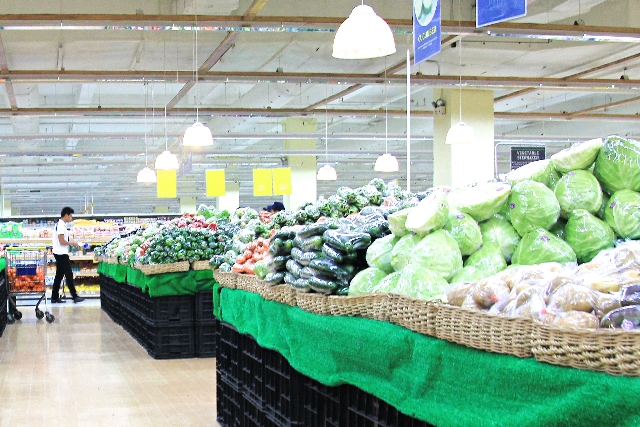
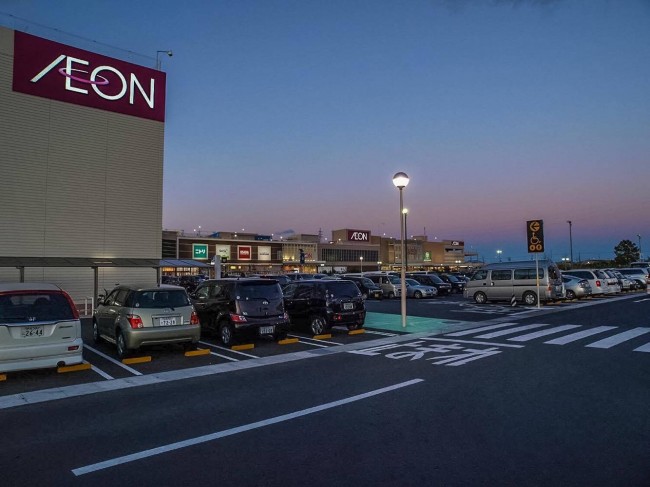
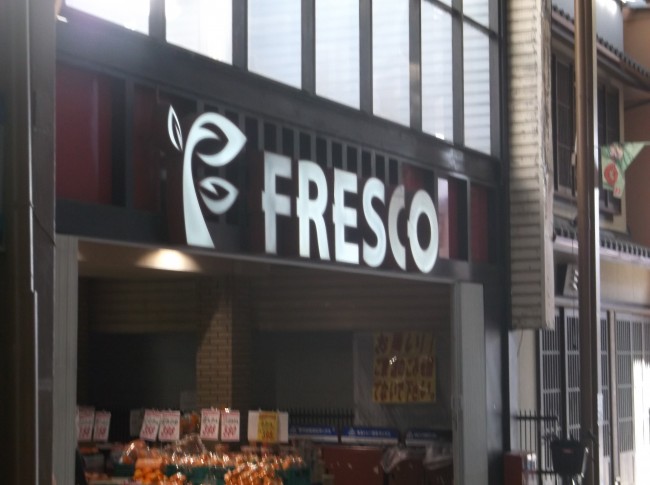
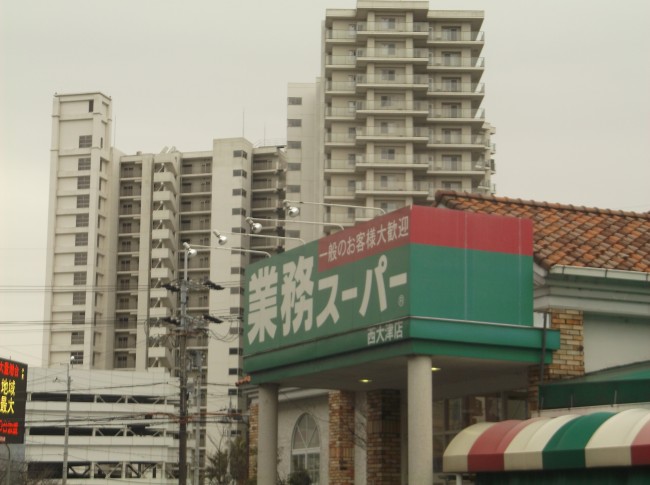
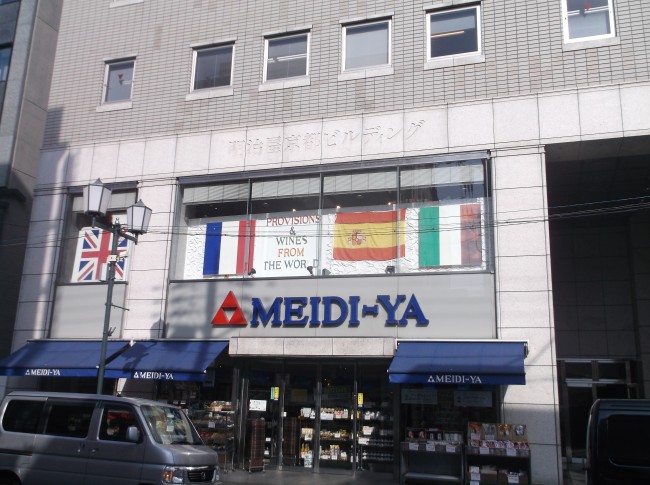
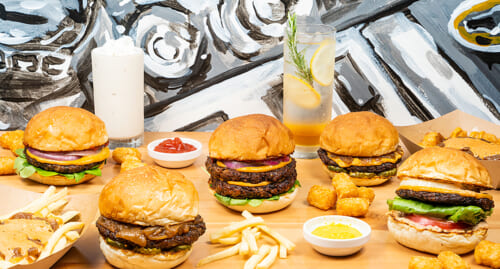
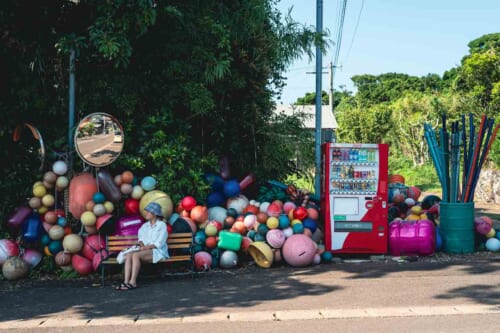
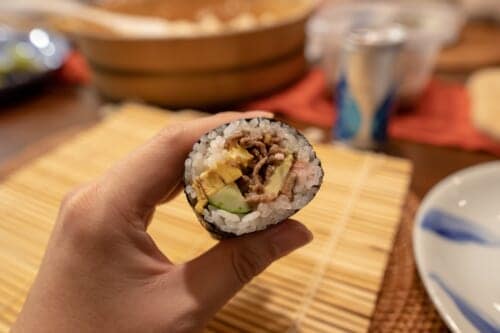
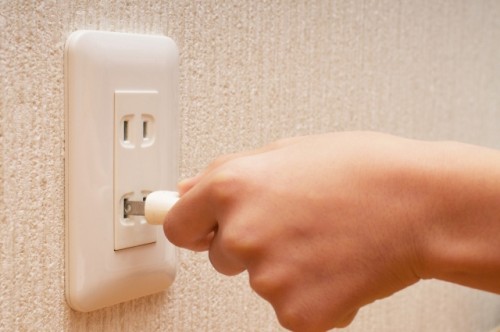
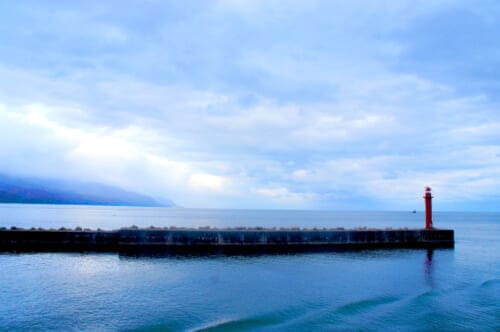
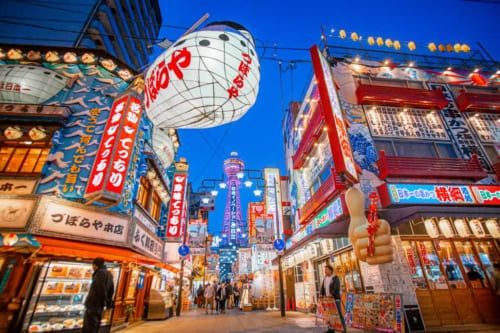
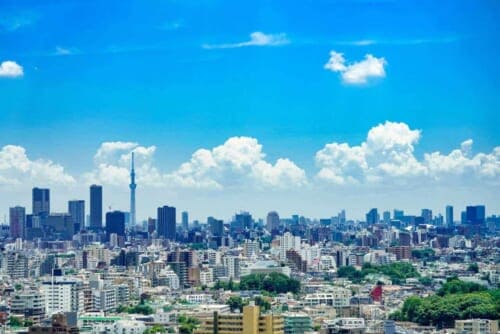
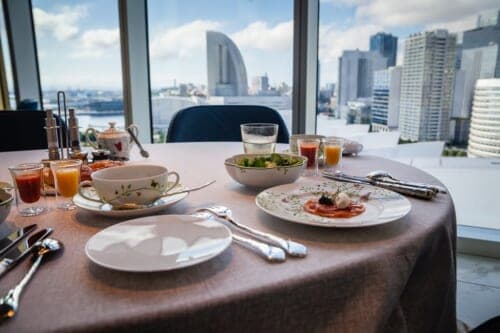
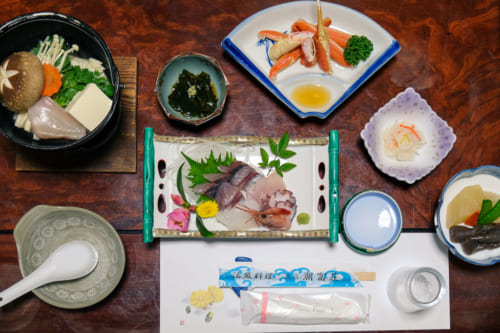


No Comments yet!